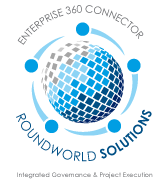Direct nursing care is an intense personal activity with positive outcome for the consumer (patient) and the nurse who has to deliver effective high quality service with constraints of time and money. As the Affordable Care Act takes effect and new consumers enter the healthcare market for services including nursing care in hospital and post discharge, time is ripe to blend the business intelligence analytics and mobility technology to provide nursing services.
Patient care technology has become increasingly complex and has transformed the way nursing care is delivered. Before extensive use of technology, nurses relied heavily on their senses of sight, touch, smell, and hearing to monitor patient status and to detect changes. Over time, the nurses’ unaided senses have been replaced with technology designed to detect physical changes in patient conditions. This has tremendously improved the patient outcomes. While technology has the potential to improve care, it is not without risks. Nurses and health care providers can be so focused on data from monitors that they may fail to detect subtle changes in clinical status. Problem with technology may emerge based on the sheer volume of new devices, the complexity of the devices, the poor interface between multiple technologies at the patient bedside.
The time is ripe to combine the existing data like patient treatment data, dosage data, electronic health records, nurses notes, barcode medication administration systems and electronic health records and other data gathered through patient care technologies with mobile devices and wearable healthcare sensor monitoring systems to deliver direct nursing care to patients. With advances in data analytics and tremendous focus on mobile enabled healthcare related sensor and medical devices as demonstrated at the recently held at CES (Consumer Electronics Show) 2014 the next generation of affordable nursing care will be sooner than later.
Several studies have documented use of electronic medical records and automated drug-dispensing machines have positive impact on nurse’s satisfaction, retention, and productivity and decrease in errors. By leveraging the latest advances in mobile technology and addressing the HIPPA and customer privacy issues, it will be possible to deliver safe and quality healthcare and nursing care.
You can find more information on our 2 week assessment
If you would like to discuss the Roundworld Solutions Big Data 360 View Tool, or this article please contact the author Arun Kumar – Vice President, Solutions and Delivery at arunk@roundworldsolutions.com or contact us today.
